First Sale Stories: Carrie Vaughn, "Kitty and the Midnight Hour," "Kitty Goes to Washington"
Lynda: What is the name of your book?
Carrie: Kitty and The Midnight Hour (and Kitty Goes to Washington).
Lynda: When was it published (or when will it be published)?
Carrie: Kitty and the Midnight Hour: November, 2005. Kitty Goes to Washington: July, 2006.
Lynda:Which publishing house?
Carrie: Warner
Lynda: What's it about?
Carrie: Kitty is a werewolf who starts a talk radio advice show dedicated to the supernatural.
Lynda: What was the inspiration for the book?
Carrie: I wanted to take the "what if werewolves/vampires/etc. really existed in the real world?" one step further. Maybe even make it a little more mundane, because I saw a lot of potential that other writers weren't taking advantage of: there would be a talk radio show. Not to mention reality TV. And faith healers, Senate hearings, tell-all memoirs, and so on. Scraping the bottom of the barrel of pop culture, as it were, with tongue firmly in cheek, while still telling a good story. I made Kitty a werewolf because I thought there was a lot of room to explore and add to the idea of werewolves, while I couldn't really add anything to vampires.
Lynda: Is it part of a series?
Carrie: Yes. Book 2 is out in July, and I've just agreed to a contract for Books 3 and 4.
Lynda: What do you like most about your main characters?
Carrie: Kitty's not perfect, she's not aggressive--she works against expectations in that she's not a dominant wolf. She's really just trying to do her own thing, live her own life, and these adventures keep getting in the way. I'm a fan of "ordinary" heroes.
Lynda: What's your favorite aspect of your book?
Carrie: I like the radio show scenes, the callers who call in with their problems. I like seeing how wacky I can get and still be taken seriously. I also like it when Kitty mouths off.
Lynda: How long have you been writing fiction?
Carrie: "My whole life" is the short answer. I have a copy somewhere of "Sally the Horse," a story I wrote when I was 8. I've been regularly selling short fiction since 1999.
Lynda: Is this your first paranormal manuscript?
Carrie: Book length, yes. Kitty started out as a short story.
Lynda: Is paranormal your main focus?
Carrie: No--at least, it wasn't before I agreed to write 4 novels about a werewolf! Most of my writing is all over the map. I have a couple of stand alone novels I'm working on selling as well. I tend to write more fantasy--contemporary/urban, and traditional.
Lynda: How long did it take to sell your book, from the time you finished your manuscript?
Carrie: A year and a half. In that time, I left one agent and found a second, which contributed to the length of time. My second agent sold the novel about six months after I signed with him.
Lynda: Thinking about the notion of "It's always darkest before the dawn," what was the lowest point in the process for you? Was there a time you almost gave up?
Carrie: When I left the first agent and before I found the second one. I felt like I'd gone back to square one. I'd also gone for almost a year without selling a short story at that time. There was a lot of despair happening over the whole business at that time.
Lynda: Do you recommend that a pre-published writer focus on finding an agent first, or do you think it's OK to submit directly to the publisher?
Carrie: Try both. Really, though, having an agent speeds up the whole process immensely, so it's definitely worth having one. My advice: focus on finishing the manuscript and making it the best that you can, shop it around to agents, and in the meantime immediately start writing a new novel.
Lynda: You don't have to mention numbers, but did you get a nice advance?
Carrie: A got a slightly above average advance. The "slightly above" was almost entirely due to my agent's negotiations--which also makes an agent worth having. A good one will pay for itself.
Lynda: What was the process of revisions/rewrites like?
Carrie: It went in stages. My agent suggested changes. Then after we sold the book, 7 months or so later, my editor suggested changes (pages and pages worth of comments!) The process can take months, which for me anyway means reading the novel over and over again. You can expect to be living with your manuscript for a long, long time…so you'd better love what you're writing. The nice thing is, my editor's comments were all extremely helpful and made the book better. The second book went directly to my editor, so it had one less round of revisions, but that also meant my editor had a lot more comments.
Lynda: Were the changes something you could live with?
Carrie: Yes. Revision is a big part of my writing process since I tend to write my first drafts very quickly, so most of my work benefits from going over it, tweaking, reorganizing, and beefing it all up.
Lynda: What was it like, working with the editor at your publishing house?
Carrie: Fantastic. I'm very lucky in that my editor "gets it:" what the character is about, what I'm trying to do, and the best way to bring all that out. I've appreciated almost all her suggestions.
Lynda: Do you have any words of wisdom for us about revisions/rewriting, etc.?
Carrie: Revision is a skill that must be learned right along with characterization, plot, etc. Something to keep in mind: when somebody suggests a change, or an alternate way of telling the story that you don't like, look at what prompted the comment. It may indicate a real problem in the story. You don't have to take someone's specific advice or solution about fixing the problem, but you should make an effort to identify what the problem really is, and what you'd like to do to solve it. Many times I'll take a suggestion not as a command for "this is what you should do," but "this is someone's reaction to the story and I need to figure out what prompted the negative reaction." I hope that makes sense.
Lynda: Were there any surprises for you about the contract you signed?
Carrie: Not really, except that they tend to be very tedious, which wasn't a surprise. A good agent will explain all the nuts and bolts to you.
Lynda: Do you get a lot of help with marketing your book, or do you have to do most of it yourself?
Carrie: I got lots of help. I’m very lucky in that Warner decided to push the book in a really big way, so they did a lot of publicity for it. I also have very enthusiastic friends!
Lynda: Did you have input about your cover?
Carrie: A little. My editor and I talked about it, and she passed along some of my suggestions. The ribbon at the end of Kitty's braid was my idea. Also, I wanted Kitty to be smiling since the women on these covers usually look so grim, and Kitty isn't like that.
Lynda: Have you done any events or book signings? If so, what was that like?
Carrie: A few. Small, but enthusiastic. I'm a regular at some of the local science fiction conventions.
Lynda: If you could go back and do something differently, what would that be?
Carrie: Not gone with the first agent? I'm pretty happy with where I am, and strangely enough, if I'd sold the book sooner, the timing might not have been right for me to have landed with the publisher and editor that I did, or for the book to have had the success that it has. So I don't think I'd actually change anything.
Lynda: What would you do exactly the same way?
Carrie: Write what I want, the way that I want. I didn't try to tailor this to the paranormal market, and I think that helped it stand out from the crowd when it came time to sell it.
Lynda: What's your next manuscript about?
Carrie: In Kitty's world, the paranormal is just starting to gain public recognition. The U.S. Senate holds hearings, and subpoenas Kitty to testify. She gets thrown into the deep end of Washington D.C. supernatural politics.
Lynda: What advice are you willing to give to all the pre-published writers out there?
Carrie: Persistence really does pay off, with one caveat: your writing must always be improving. Challenge yourself, aim high, read a lot. Try new things: a different p.o.v., a different setting, whatever. Develop your voice. This is why I like short stories, they're a good way to experiment and find your voice.
www.carrievaughn.com
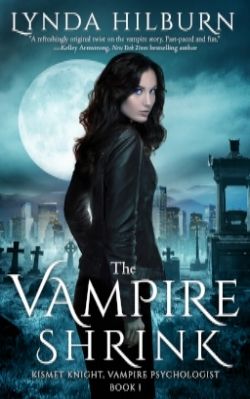
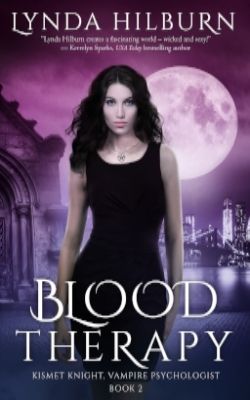
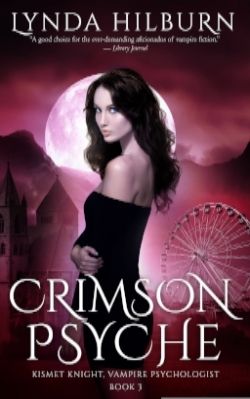
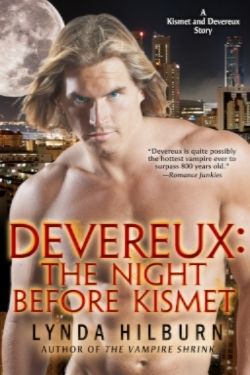


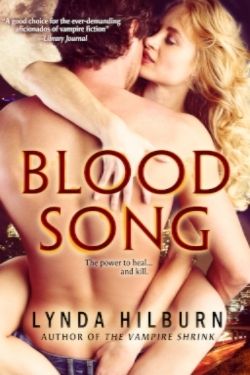

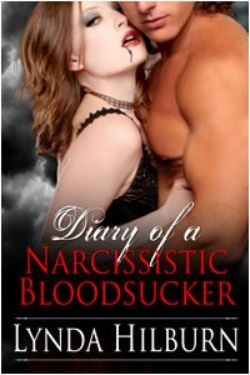

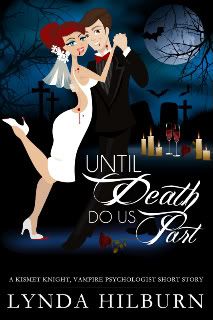
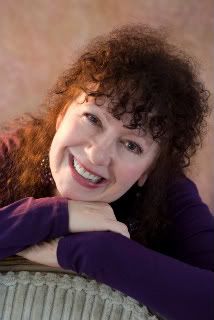
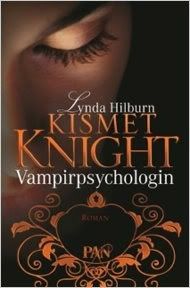
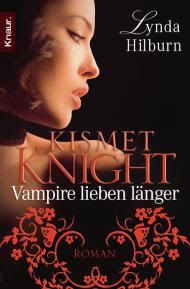
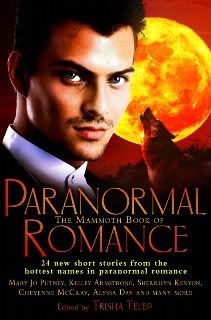
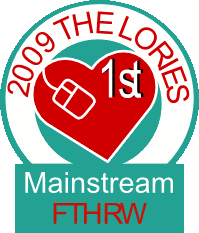




0 Comments:
Post a Comment
<< Home